It’s no secret that RVs have become increasingly popular in recent years, with people opting to hit the open road and explore parts of the country they never thought possible. But is an RV equipped with a catalytic converter? This article will answer this question and provide useful tips on making sure your RV meets all necessary EPA standards.
Table of Contents
What is a catalytic converter?
A catalytic converter is a vehicle emission control device that works to reduce the amount of harmful pollutants released into the environment. It does this by converting pollutant compounds like carbon monoxide and hydrocarbons into less toxic substances like water vapor and nitrogen oxide. Catalytic converters are found on most gasoline-powered vehicles, including cars and trucks, but do RVs have them? [1]
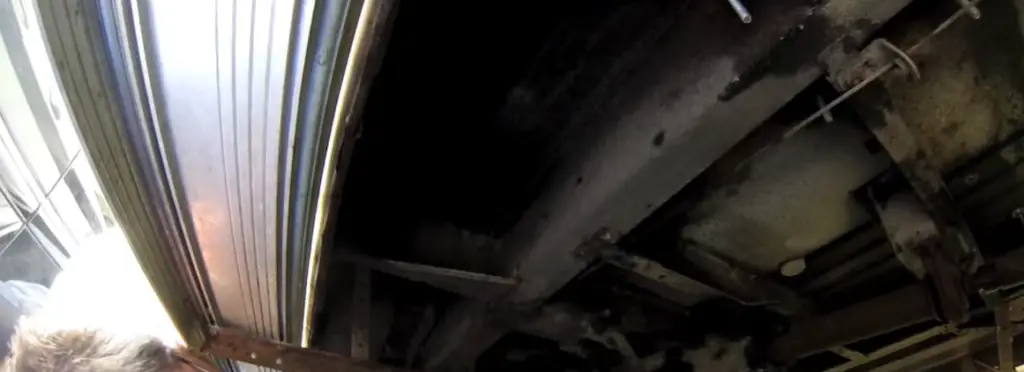
So why are thieves stealing RV catalytic converters?
Catalytic converters are highly sought after by thieves since they contain a lot of valuable metals, such as platinum and palladium. Some catalytic converters can be sold for hundreds of dollars in scrap metal. Thieves will often target RV’s because they can easily remove the converter due to its location at the back of a vehicle.
It is important to take precautions in order to prevent your RV’s catalytic converter from being stolen. Make sure that you always park your RV in a secure location and consider using a hitch lock or tire locks when parking your RV overnight. Additionally, installing a security system with motion sensors can also help deter thieves. If you are aware of any suspicious activity, contact your local police department immediately. [2]
When and where are RV catalytic converter thefts happening the most?
RV catalytic converter thefts have been reported all over, but they appear to be particularly common in areas with large RV populations, such as campgrounds. These thieves are looking for easy targets and often quickly remove the catalytic converter from your vehicle and leave the area before anyone notices.
It’s important to remain vigilant when you’re out camping with your RV. Install motion-activated security lights to deter potential thieves from targeting your vehicle. If you can, park in a well-lit area and consider installing a GPS tracker on the catalytic converter so that it can be tracked if it’s stolen. [1]
Where is a Catalytic Converter Located on an RV?
A catalytic converter is most often located near the rear of the vehicle, usually just below the floor. In some RVs, it may be tucked away in a corner or even between two walls. Generally, it can be found near the exhaust system. If your RV has a generator, you’ll likely find a catalytic converter near that as well. [2]
What RV Types Use Catalytic Converters?
Most recreational vehicles, or RVs, no longer use catalytic converters because of their size and weight. However, some diesel-powered motorhomes, fifth wheels and travel trailers are still equipped with these devices. In a few cases, gasoline-powered motorhomes may also have them installed. It is important to check with the manufacturer to determine if your RV is equipped with one.
Catalytic converters are designed to reduce the amount of hydrocarbons, carbon dioxide and other harmful emissions released into the atmosphere from an RV’s engine. They work by converting toxic gases from the exhaust into less-harmful substances, such as nitrogen and water vapor. [2]
What Problems Occur with Catalytic Converters?
Associated parts not working
Catalytic converters are complex machines and many parts can fail, causing them to not work correctly. The most common problems include: clogged catalytic converter honeycomb cells, leaking gaskets or seals, loose heat shields, broken oxygen sensors (the device that measures the exhaust gas), and faulty O2 heater circuit. [2]
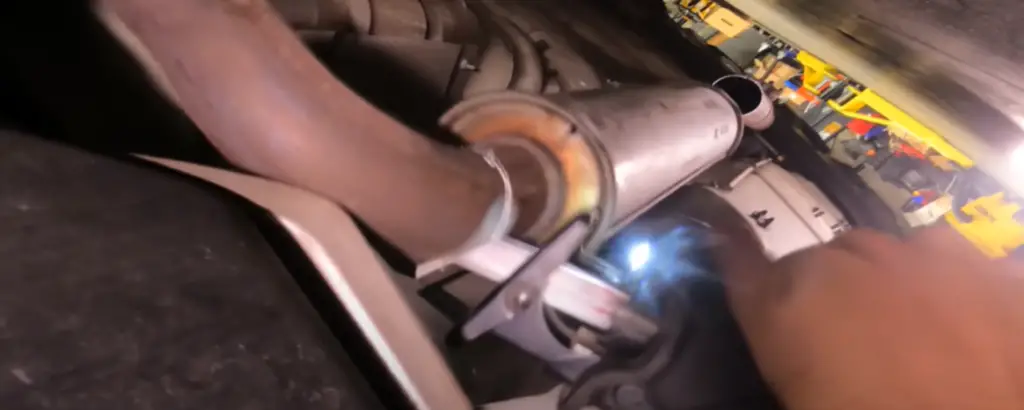
Overheating
Overheating can occur when the catalytic converter is clogged. This can happen if there is too much backpressure in the exhaust system, or if the car has been running rich for a long period of time. If this occurs, it may cause more damage to both the engine and the catalytic converter itself. [2]
Fluid leaking in
When the catalytic converter is installed, it needs to be sealed correctly. If this seal fails, then exhaust gas can leak back into the engine, or even worse- coolant may also begin leaking into the exhaust system. This could cause further damage and should be checked by a professional as soon as possible. [2]
External damage
External damage to the catalytic converter can also occur if it is exposed to extreme temperatures for a prolonged period of time, or if it has been hit by debris from the road. If you suspect that your RV’s catalytic converter may have been damaged externally, then it’s important to get it checked out as soon as possible. [2]
Lead
Catalytic converters can become clogged due to a buildup of lead, which is a byproduct of combustion. If you suspect that your RV’s catalytic converter may have this issue, then it’s important to get it checked out and cleaned as soon as possible. [2]
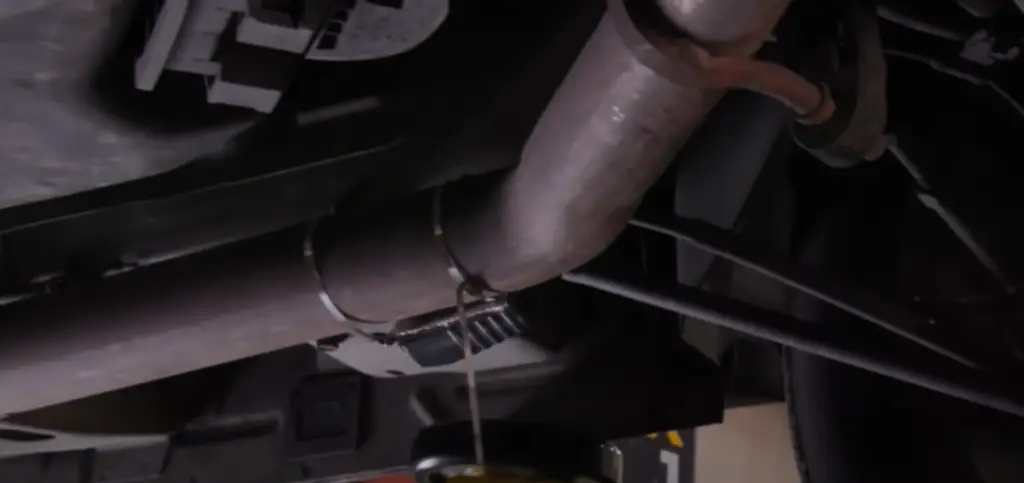
How Do You Maintain a Catalytic Converter?
Maintaining your catalytic converter is relatively simple and straightforward. Most of the work involved in keeping it running well will happen during your regular RV maintenance checks. Here are some tips to remember when caring for a catalytic converter:
- Check your engine regularly for any exhaust system leaks or blockages that can cause damage to the catalytic converter.
- Make sure your RV is equipped with the proper fuel filter to prevent dirt or contaminants from entering the catalytic converter and clogging it up.
- Replace spark plugs and wires as recommended by the engine manufacturer in order to ensure maximum performance of your catalyst system.
- Check the oxygen sensor regularly to make sure it is functioning properly and not producing too much or too little exhaust.
- Have a professional technician check your catalytic converter every year or two as part of your regular RV maintenance routine. [2]
Can You Drive an RV Without a Catalytic Converter?
The answer is yes, you can drive an RV without a catalytic converter. However, it’s important to remember that this only applies to recreational vehicles (RVs). Cars and other everyday vehicles need catalytic converters in order for them to be roadworthy and legal.
Catalytic converters are essential when it comes to keeping the air we breathe clean. Without them, harmful gases like carbon monoxide and nitrogen oxides are released into the atmosphere and can cause serious damage to both human health and the environment. So if you’re driving an RV around town or on long trips, it’s important to make sure it is equipped with a catalytic converter. [2]
Can Catalytic Converters Be Stolen From RVs?
Unfortunately, catalytic converters can be stolen from RVs. The most common catalytic converter that thieves target are the ones with high precious metal content, such as those containing Palladium, Rhodium or Platinum. Thieves usually use a saw to cut off the exhaust system and remove the converter for its valuable metals.
It’s important to take precautions to keep your RV’s catalytic converter safe. Here are a few tips for protecting your RV from catalytic converter theft:
- Install an effective security system: Invest in an alarm or other security system that will alert you if someone is tampering with your exhaust system.
- Park in well-lit areas: Park your RV in well-lit areas to deter potential thieves.
- Install a catalytic converter cage: Installing a cage around the catalytic converter is an effective way of preventing it from being stolen. The cage should be made out of sturdy material such as steel and have strong locks. If a thief cannot access the converter, they can’t steal it.
- Invest in a GPS tracking device: A GPS tracking device allows you to monitor your RV’s location, even when it is parked. If the catalytic converter is stolen, you will know the exact time and location so that the police can investigate. [2]
How to Avoid RV Catalytic Converter Theft
Park in a secure, well-lit area
Whenever possible, park in a secure and well-lit area. This will make it more difficult for would-be thieves to access your RV’s catalytic converter without being seen. [2]
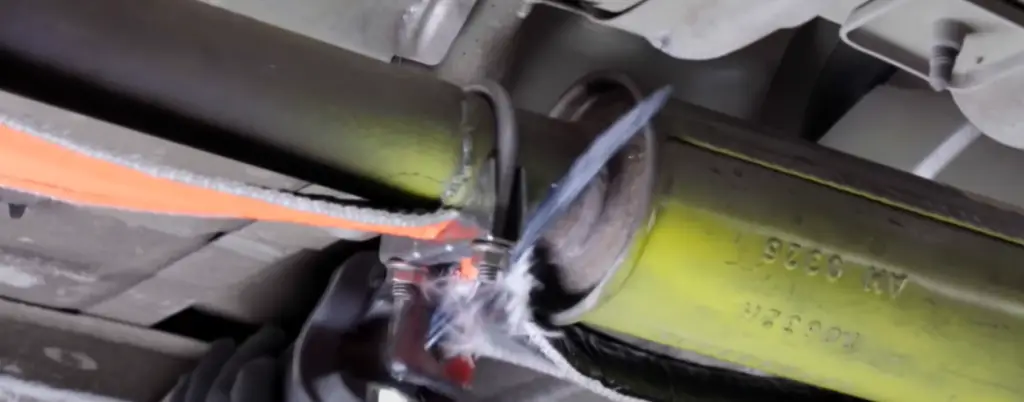
Use a security camera to monitor your RV
Installing a security camera that is capable of monitoring the area around your RV may also be an effective deterrent. This will enable you to monitor suspicious activity and keep tabs on who’s coming and going around your vehicle. [2]
Weld the catalytic converter in place
Welding the catalytic converter in place is a good way to make it more difficult for thieves to remove your vehicle’s exhaust system. This should be done by a professional who has the necessary tools and skill set to do the job properly. [2]
Add a security system with an alarm
Adding a security system with an alarm to your RV is a great way to deter potential thieves. An alarm will sound if anyone attempts to access the catalytic converter, alerting you and hopefully scaring off would-be thieves. [2]
Engrave your vehicle identifying number (VIN)
Engraving your vehicle’s VIN onto the catalytic converter can help to deter thieves, as it will make it difficult for them to sell the part. [2]
Add some color
Adding some color to the catalytic converter may also help to deter thieves. Brightly colored paint applied to the part will make it more noticeable and reduce the chances of it being stolen. [2]
Be aware of your surroundings
Finally, it’s important to be aware of your surroundings when parking your RV in public spaces. Being vigilant and keeping an eye out for any suspicious activity can help you protect your vehicle from catalytic converter theft. [2]
How Much Does it Cost to Replace a Catalytic Converter?
Replacing a catalytic converter in an RV can be costly, depending on the make and model of your vehicle. Prices usually range from $400 to upwards of $1,000 or more. It’s important to factor in the cost of labor when determining the total price. Labor costs for installing a new catalytic converter can range from $75 to $200 or more, depending on where you take your vehicle and the model of RV that you have. Keep in mind that some parts may need to be specially ordered for your specific vehicle, as well, which can add to the cost. [2]
FAQ
How many catalytic converters does RV have?
Most RVs have one main catalytic converter, located in the exhaust system near the engine. Some larger RVs may also have additional converters, located at various points along the length of the exhaust system. The number and placement of these converters depend on the size and model of your RV, so it’s important to consult your vehicle manual for the most accurate information.
Can an RV run without a converter?
It is not recommended to operate an RV without a catalytic converter. Catalytic converters help reduce the amount of harmful emissions that are released into the environment by burning off hazardous gases such as carbon monoxide, hydrocarbons and nitrogen oxides. Without a catalytic converter, these gases will not be filtered properly and can cause serious health and environmental problems.
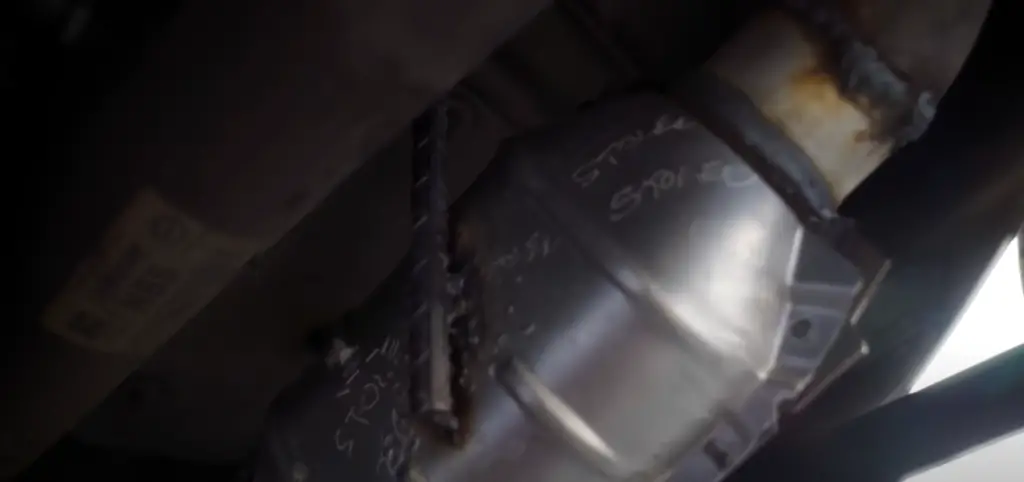
How does the converter on an RV work?
The RV’s catalytic converter works by converting the harmful gases from the exhaust system into less toxic substances before they are released into the atmosphere. Catalytic converters contain small amounts of precious metals like platinum, palladium and rhodium that act as a catalyst to speed up the reaction between pollutants and oxygen molecules in the exhaust system. This reaction causes the pollutants to be converted into carbon dioxide and water, both of which are much less harmful than their original form.
Do RVs have inverters or converters?
RVs typically have both inverters and converters. Inverters are used to convert DC (Direct Current) power from the RV’s battery into AC (Alternating Current) power that can be used to run appliances such as televisions, microwaves and air conditioners. On the other hand, a converter is used to convert AC (household) power from a shoreline or campground into DC power that can be used to recharge the RV’s battery.
Why do RVs use converters?
Converters are necessary for RVs because they allow the RV to use power from a standard AC outlet or campground. Without a converter, you would not be able to charge your RV’s battery or run your appliances from an AC outlet. Converters also help keep the RV’s battery charged and protect it from being overcharged or drained.
What is a catalytic converter on an RV?
A catalytic converter on an RV is a device located in the exhaust system that helps reduce emissions by converting hazardous gases into less toxic substances before they are released into the environment. Catalytic converters contain small amounts of precious metals like platinum, palladium and rhodium that act as catalysts to speed up the reaction between pollutants and oxygen molecules in the exhaust system. This reaction causes the pollutants to be converted into carbon dioxide and water, both of which are much less harmful than their original form.
What does a converter look like in an RV camper?
The catalytic converter in an RV camper usually looks like a small metal box with exhaust pipes leading in and out of it. It is located near the engine, typically at the rear of the vehicle, and can be identified by a label or marking indicating its purpose. The shape and size may vary depending on your RV’s model and size, so it’s important to consult your vehicle manual for the most accurate information.
How do you prevent catalytic converter theft in a motorhome?
Catalytic converter theft is unfortunately a common problem in motorhomes. To protect your RV from theft, it is important to take measures such as parking in well-lit areas, installing security cameras or alarms, and using locking devices that secure the converter to the vehicle frame. Additionally, you should be aware of any suspicious activity around your RV and report it to the police immediately.
Useful Video: Catalytic Converter Cut out. Camper van.
Conclusion
If you’re a RV owner, it’s important to be aware of the laws and regulations regarding catalytic converters on your vehicle. In some states, it’s a requirement that all RVs have a functioning catalytic converter installed. Even if not required by law, installing one can help improve air quality and reduce emissions. If you need to install a catalytic converter, you can find all the parts and tools needed online or at your local auto parts store.
Thanks for learning more about Do RVs Have Catalytic Converters with us! We hope this article has been helpful in understanding the importance of catalytic converters and how they can benefit RV owners. If you have any other questions or concerns, please don’t hesitate to contact a certified mechanic or automotive technician. Stay safe and enjoy your RV adventures!
References:
- https://carefreecoveredrvstorage.com/blog/rv-catalytic-converter-theft-prevention-common-questions-answers-and-tips-from-an-expert
- https://familytravelfever.com/rv-catalytic-converters/

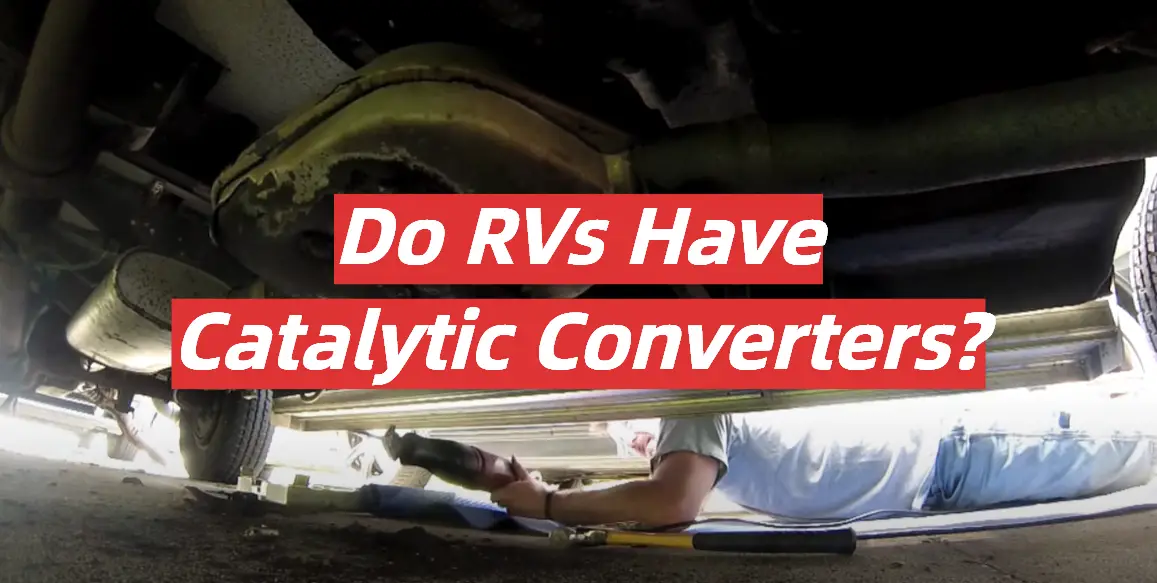



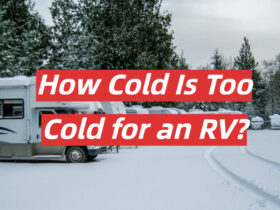
Leave a Reply